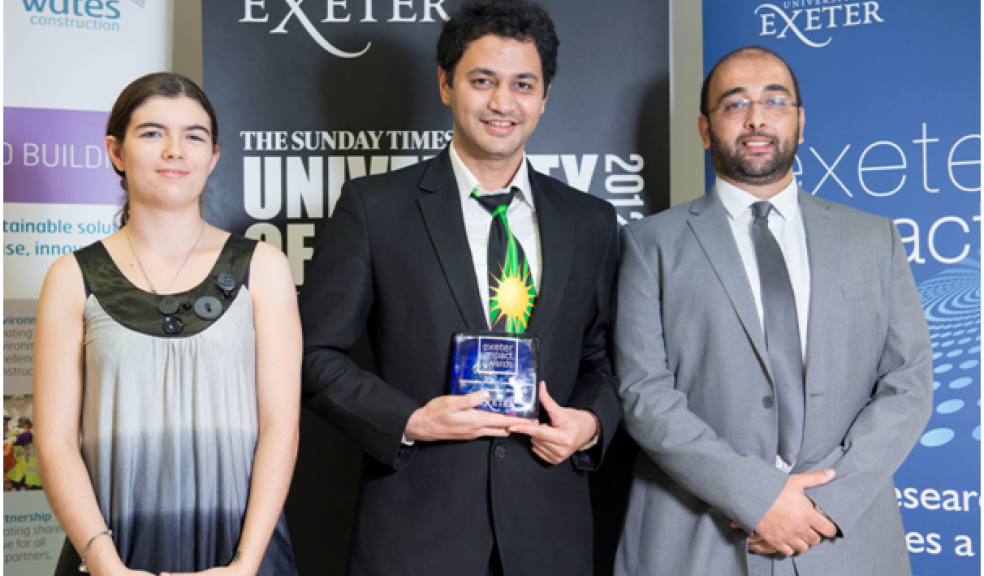
Impact Award: Sustainable Futures
During a glittering ceremony last night in the Great Hall, the winners of the University of Exeter Impact Awards 2013 were revealed.
The impact awards celebrate the outstanding contributions researchers at the University have made to wider society one.
Each award was separated into categories to showcase the particular area that they benefit.
With the issues of climate change and fuel shortages becoming a larger issue each day the University has recognised the importance of planning ahead with the Outstanding impact to sustainable futures award.
There were combined winners in this category, with Hasan Baig and his supervisor Professor Tapas Mallick both taking home the honours for their work providing sustainable energy to rural communities.
Prof Mallick’s research sees the combination of solar and biomass energy is being harnessed by Prof Tapas Mallick’s team to generate an uninterrupted off-grid power supply which could benefit rural communities.
Concentrated photovoltaic (CPV) systems integrated with bio- and hydrogen-energy could provide an effective energy source in areas with poor access to traditional energy systems but lots of solar energy and biomass.
The group is developing efficient BioCPV modules to integrate these technologies through national and international, academic and industrial collaboration, with the development of smart control technologies.
This was supported by work of post-graduate student Hasan Baig into creating better solor energy cells in his research titled ‘Windows of the future: developing advanced photovoltaic technology’
Miniaturised prototype solar cells being built by Hasan Baig at the Environment and Sustainability Institute are four to five times more effective at capturing solar irradiance than conventional flat panels.
By reducing the cell size, the amount of silicon required is also reduced, lowering carbon footprint, whilst generating higher energy for a given surface area.
Working under the supervision of Prof Tapas Mallick, Hasan’s efforts have been central to the development of building integrated concentrating photovoltaic (BiCPV) technology.



















